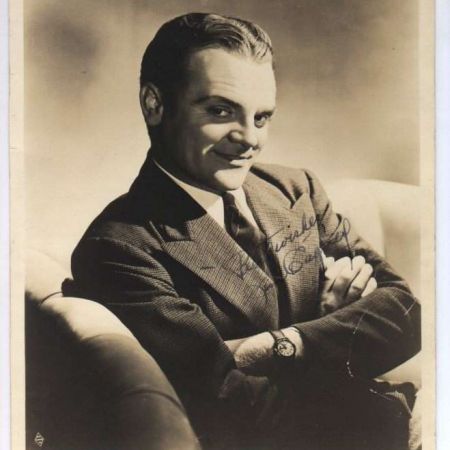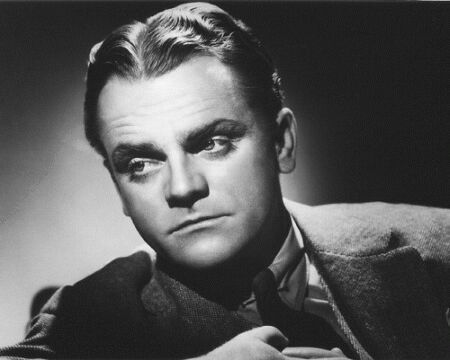With his raspy voice, and staccato vocal inflections James Cagney was one of the brightest stars in American cinema history. The son of an Irish father and a Norwegian mother who lived and worked in New York's Lower Eastside, Cagney did a variety of odd jobs to help support his family, including working as a waiter, and a poolroom racker, and even a female impersonator in a Yorkville revue. This humble beginning led to joining the chorus in the Broadway show Pitter-Patter, followed by a vaudeville tour with his wife Francis. By 1925, Cagney had begun to play Broadway leads; he was particularly successful in the musical Penny Arcade, which lead him to be cast in the Hollywood version, renamed Sinner's Holiday (1930). Within a year, Cagney had been signed by Warner Bros., where, in his fifth movie role, he played the ruthless gangster in Public Enemy, the 1931 film that made him a star.

Cagney} was a small, rather plain looking man, and had few of the external qualities usually associated with the traditional Hollywood leading man during the '30s. Yet, inside, he was a dynamo, able to project a contentious and arrogant confidence that made him the ideal Hollywood tough guy, the role in which he is best remembered. Of Cagney's energetic acting style, Will Rogers once said, "Every time I see him work, it looks to me like a bunch of firecrackers going off all at once." But Cagney was not content to simply play one type of role, and soon proved his range and versatility by appearing in musicals (Yankee Doodle Dandy [1942 (as Bottom} in A Midsummer Night's Dream [1935 (as a gung-ho American businessman in One, Two, Three[1961]). Cagney even tried directing with Short Cut to Hell a remake of This Gun for Hire, but it was not a commercial success. He retired afterward -- publishing his autobiography, -Cagney by Cagney in 1975 -- although continued to receive respect and adulation from his peers and the public. Fifteen years after retiring, Cagney was the first actor to receive the American Film Institute's Life Achievement Award. In 1980, he earned a similar award from Kennedy Center. And, in 1984, he received the U.S. government's highest civilian honor, the Medal of Freedom.

Already suffering from diabetes, circulatory problems and recurring strokes, Cagney's health began rapidly deteriorating in retirement. Although he had been refusing movie offers for years, his doctors finally convinced him that a little work would do him good. He made his critically acclaimed 1981 comeback playing a small, but crucial role in Milos Forman's Ragtime. This encouraged the aging actor to appear as a grumpy ex-prizefighter in a television movie Terrible Joe Moran in 1984. It was his final film; two years later, Cagney died of a heart attack on his isolated farm in upstate New York. At his funeral, longtime friend and colleague President Ronald Reagan delivered the eulogy, noting that "America lost one of her finest artists."

































